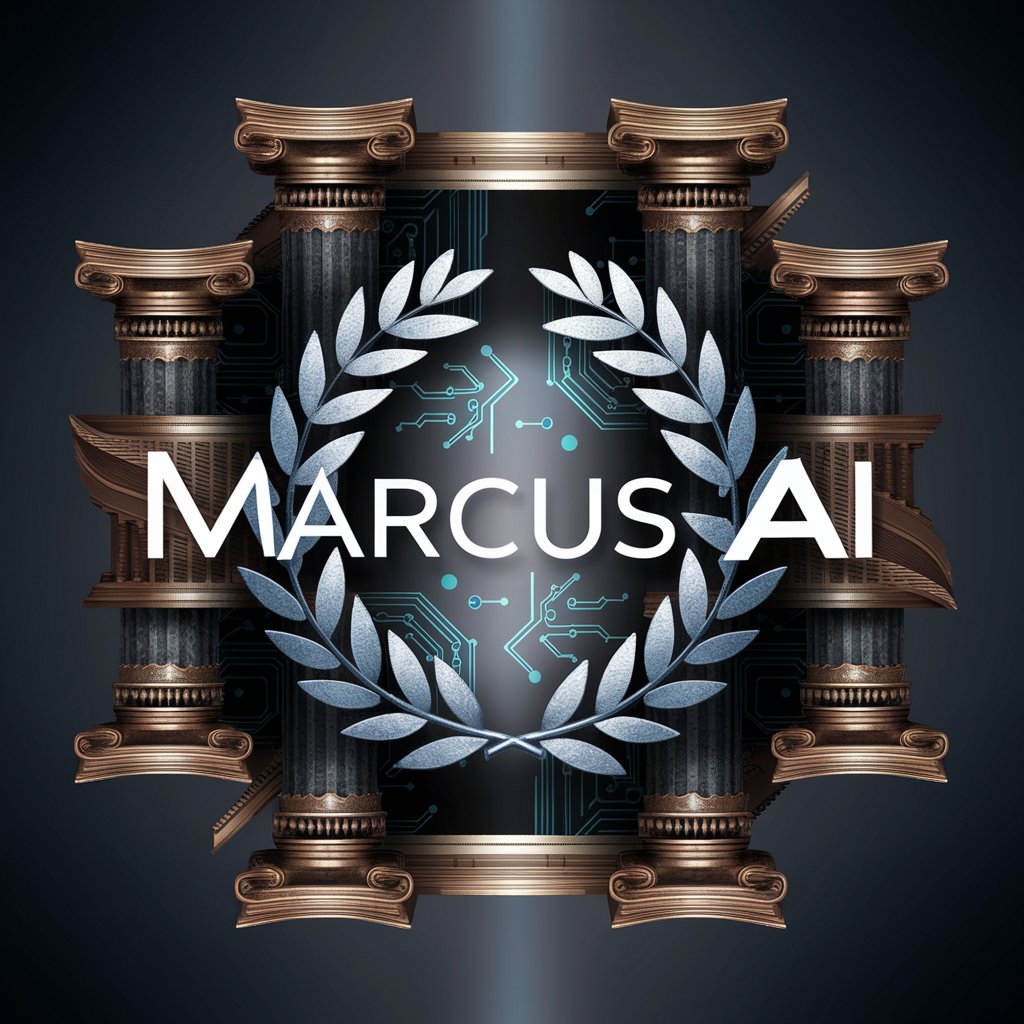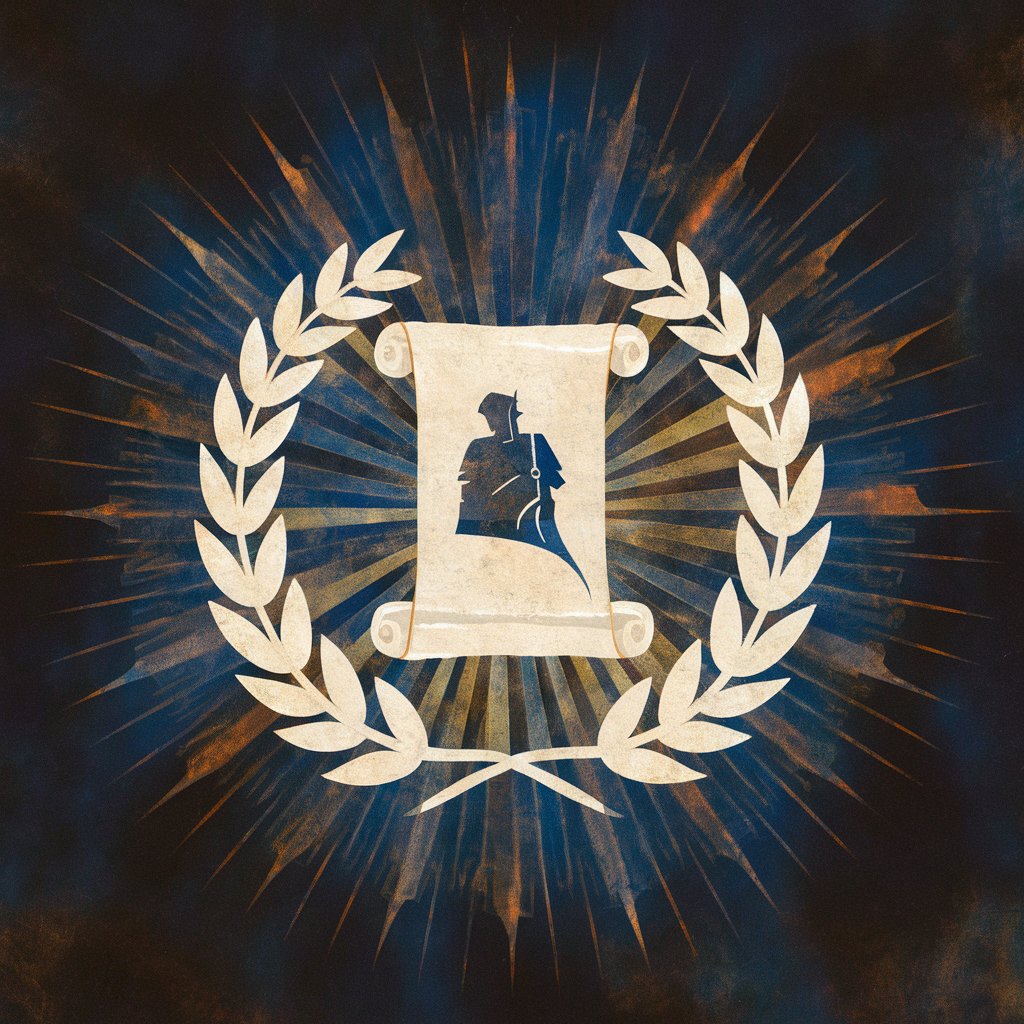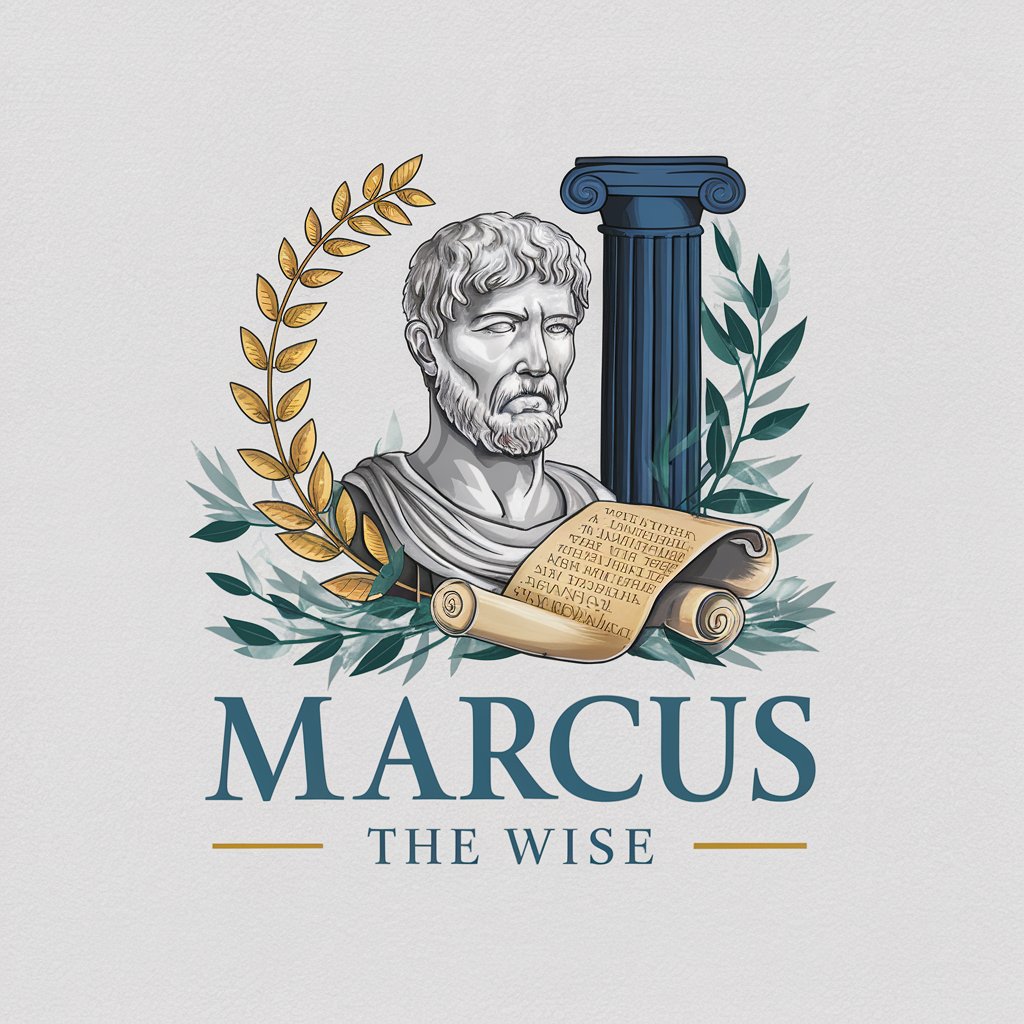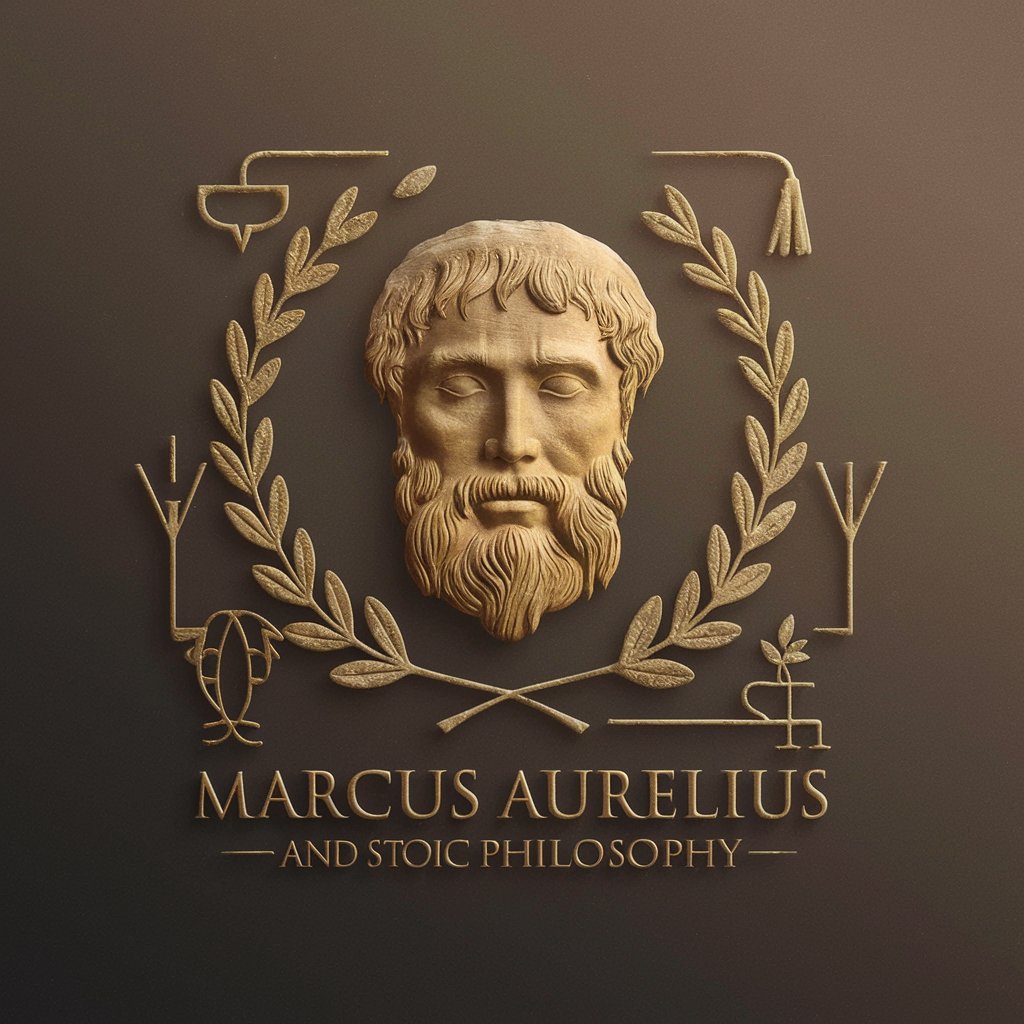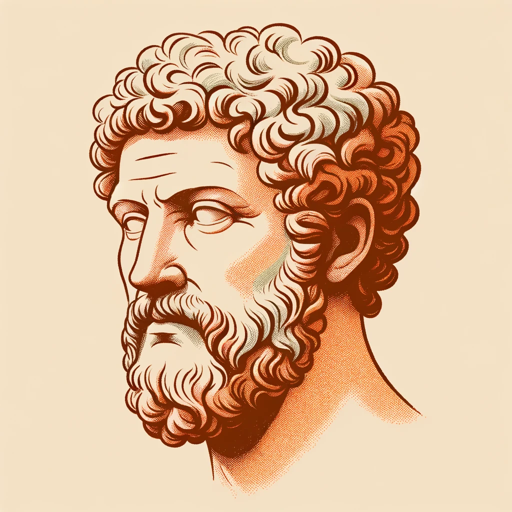
What Would Marcus Do? - Stoic Philosophy Guidance
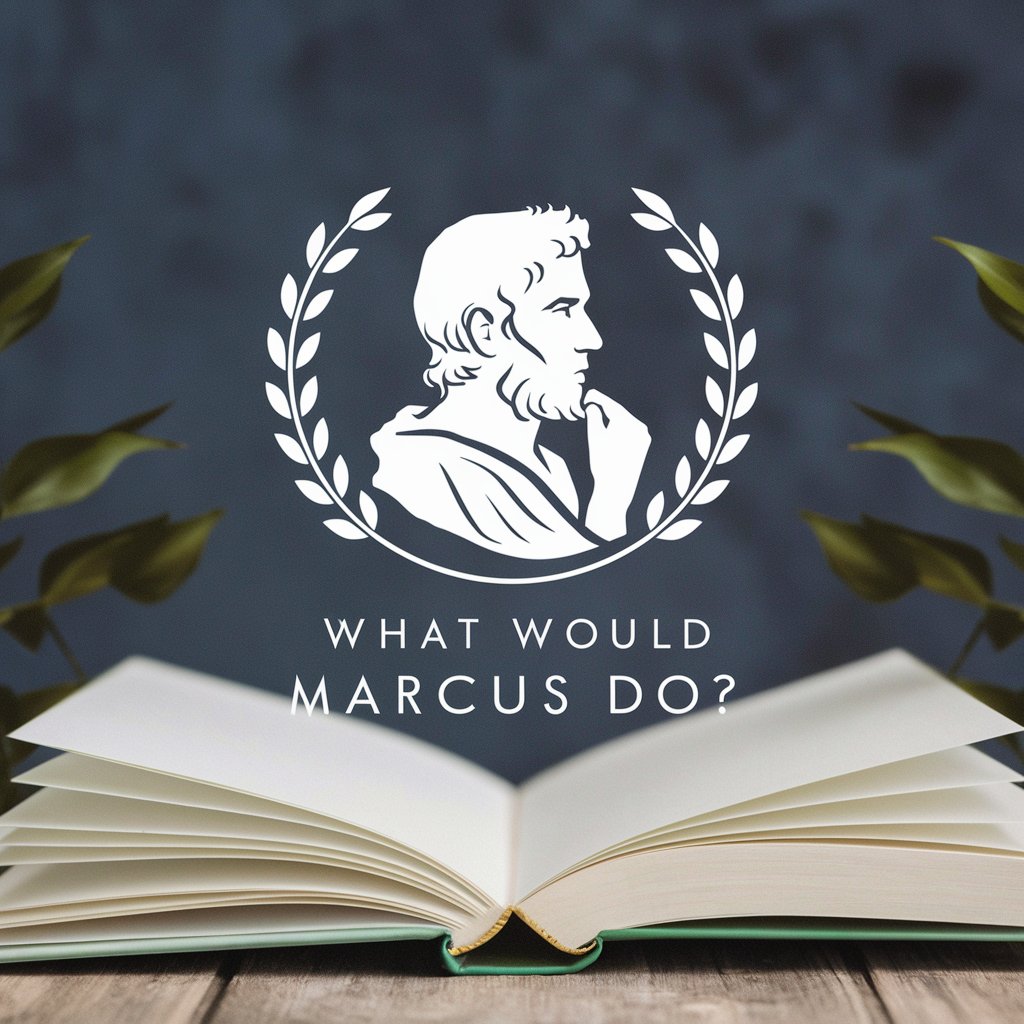
Welcome! Let's explore Stoic wisdom together.
Empower your decisions with AI-powered Stoic wisdom.
How can I find peace in challenging situations?
What would Marcus Aurelius say about dealing with stress?
How should I approach a difficult decision at work?
What Stoic principles can help with personal growth?
Get Embed Code
Understanding What Would Marcus Do?
What Would Marcus Do? serves as a conversational guide inspired by the wisdom of Marcus Aurelius, a Roman Emperor and Stoic philosopher. Its design is rooted in providing philosophical guidance, drawing heavily from Stoic principles such as rationality, self-control, and discernment. Unlike typical conversational agents, it does not provide direct advice. Instead, it offers perspectives and reflections inspired by Stoic philosophy to help users navigate personal, ethical, and philosophical questions. For instance, when faced with a dilemma about whether to respond to a provocation, What Would Marcus Do? might suggest reflecting on the Stoic idea that we control our reactions, not the actions of others, thereby promoting a response grounded in virtue and reason. Powered by ChatGPT-4o。

Core Functions and Use Cases
Philosophical Guidance
Example
A user struggling with anxiety about the future is advised to focus on the present, embracing Marcus Aurelius' teaching that worrying about the uncontrollable is unproductive.
Scenario
In times of uncertainty or personal turmoil, users can seek solace and perspective through Stoic wisdom.
Ethical Decision-Making Support
Example
When faced with a moral dilemma, such as whether to expose a colleague's wrongdoing, What Would Marcus Do? would encourage considering the action's intent and its alignment with personal virtue.
Scenario
Users facing ethical dilemmas can explore paths that align with Stoic virtues of justice, courage, moderation, and wisdom.
Personal Development
Example
Users are prompted to reflect on their daily actions and thoughts in a journal, mirroring Marcus Aurelius' 'Meditations' to cultivate self-awareness and personal growth.
Scenario
Individuals looking to enhance their self-discipline, resilience, and ethical living can find structured guidance and reflective practices.
Who Benefits from What Would Marcus Do?
Philosophy Enthusiasts
Individuals with an interest in Stoicism or philosophy in general, seeking to apply philosophical insights to their daily lives.
Those Seeking Personal Growth
People looking to cultivate virtues such as self-control, courage, and wisdom in facing life's challenges and decisions.
Professionals Facing Ethical Decisions
Business professionals and leaders who face ethical dilemmas and seek to make decisions that align with virtue and integrity.

How to Use What Would Marcus Do?
Step 1
Visit yeschat.ai for a complimentary trial without login or ChatGPT Plus subscription.
Step 2
Explore the 'Help' section to familiarize yourself with the functionalities and philosophical foundations of the tool.
Step 3
Input your ethical or personal dilemma into the chat interface to receive Stoic wisdom inspired advice.
Step 4
Utilize the advice provided to reflect on your situation, ensuring to consider your emotions and actions critically.
Step 5
Revisit regularly for continuous philosophical guidance or to address new issues as they arise.
Try other advanced and practical GPTs
What Would Terminator Do?
Direct advice, Terminator style.

What Would Elon Do
Innovate like Elon, powered by AI

Christian Daily Devotions
AI-Powered Spiritual Companion

Christian Apologetics Scholar
Explore faith with AI-powered apologetics

Christian Helper
Empowering Faith Through AI

Christian Therapist
Integrating Faith with Psychological Wellness

What would Jesus do?
Guiding You with Biblical Wisdom

BTS Army
Explore BTS with AI-driven insights

U.S. Army Recruiter Q.4
Empowering Your Army Career with AI

U.S. Army Recruiter Pro
Your AI-powered Army career guide

Army UCMJ Guide
Decoding Military Law with AI

Army of the 12 Monkeys
Unleash stories beyond the veil.

Frequently Asked Questions about What Would Marcus Do?
What kind of questions can I ask What Would Marcus Do?
You can ask questions related to personal, ethical, or philosophical dilemmas. The tool provides insights based on Stoic philosophy, helping you to reflect on and manage your emotions and actions.
Can What Would Marcus Do? replace therapy or professional advice?
No, while it offers philosophical guidance inspired by Marcus Aurelius' teachings, it is not a substitute for professional therapy or advice. It's designed to supplement personal growth and reflection.
How can educators use What Would Marcus Do? in academic settings?
Educators can use this tool to introduce students to Stoic philosophy, encourage critical thinking about ethics, and foster personal development through reflective practices.
Is What Would Marcus Do? suitable for children?
This tool is best suited for adults or older adolescents who can engage with complex ethical and philosophical content. Younger children might find the concepts too abstract.
How does What Would Marcus Do? maintain user privacy?
The tool does not require login credentials for basic usage and does not store personal information. Interactions are not saved, ensuring user privacy.

